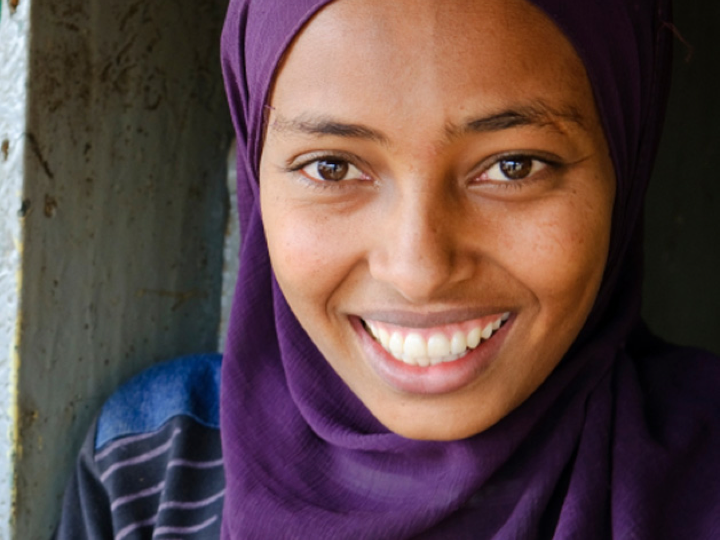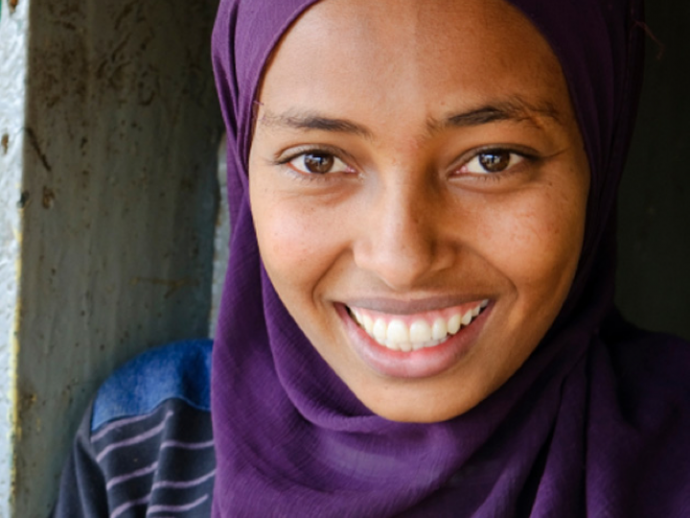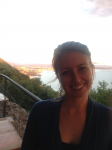Your birthday is in one week! This means free drinks at the bar all week, right? Or for the younger ones, new toys?
The next day, instead of going to school or work, you wake up to your mother packing food and yelling at you to get dressed because you are going away.
You run from your home in search of security. You left your favorite toys, pictures, phone, books . . . Now you are in a camp, surrounded by strangers, standing in line to get food, sitting all day waiting to go somewhere else. And thinking of how much you miss your dad and brother, who were killed.
As you stand in line to get food one day, a bomb goes off.
You get up and see your mother lying on the ground a few feet from you. You crawl over to her, ignoring the sharp pain shooting up your leg. You yell her name. She doesn’t move. She is dead. You are all alone now, somewhere. You don’t know where. You don’t know where you are going. You don’t even know anyone here.
Maybe she was pregnant. You were excited, apart from all the pain. You were excited to finally have a brother or sister to play with in this camp! But what you don’t know is that the baby is a result of a rape that occurred when a group of militiamen stormed into your town.
You realize your leg was badly injured. It needs to be amputated, but you don’t want to. How will I walk? How will people look at me? What did I do to deserve this?
You are all alone. “I miss my mom. She would give me hope that human kindness exists.”
This happened in February at one of the refugee camps in Nigeria. Refugees stay in the camps anywhere from 6 months to more than 10 years. Then they are accepted to go into another country to begin a new safe life.
 My response to the state of refugees was always sadness, but I had no idea where to begin helping them or what they needed. As an immigrant myself, all I thought about was how much they must miss their countries’ food. As fate had it, I began my scholarly project with Dr. Crista Johnson-Agbakwu, an OB/Gyn who founded the Maricopa County Refugee Women’s Health Clinic in Phoenix. During my research I focused on female refugees from ages 18 and up, from a range of countries of origin, a range of number of births and amount of time in the USA. Each one has a unique story, some of which you can’t fathom, in both positive and negative ways.
My response to the state of refugees was always sadness, but I had no idea where to begin helping them or what they needed. As an immigrant myself, all I thought about was how much they must miss their countries’ food. As fate had it, I began my scholarly project with Dr. Crista Johnson-Agbakwu, an OB/Gyn who founded the Maricopa County Refugee Women’s Health Clinic in Phoenix. During my research I focused on female refugees from ages 18 and up, from a range of countries of origin, a range of number of births and amount of time in the USA. Each one has a unique story, some of which you can’t fathom, in both positive and negative ways.
Through my experience with the clinic and the refugee community, I have become stunned at the decreased amount of community involvement with refugee engagement. Phoenix has one of the largest refugee communities in the country, mostly composed of Asian and African countries of origin. Most of the time the community they are placed into does not even know they are there. They are rarely asked: What would you like from the community? What do you need to succeed? Are you comfortable? Do you feel safe? Instead, assumptions are made.
How my project came about was by literally asking women at the clinic what they wanted. And there was a great request for a sexual health program focusing on female anatomy, genital mutilation, and sexual and gender-based violence. Would you have guessed that?
There may have been an assumption that they would ask for sexual health education. But what they want is to learn about their unique bodies and what has happened to them anatomically as they are already well versed on HIV and STDs since these are usually the results of the sexual and gender-based violence they have experienced. Assuming this topic was used for a discussion at a clinic with refugee women, how do we know there will even be an attendance? Do we promise food? No, please do not do this; they make ethnic food that is more delicious than Jimmy John’s. The correct answer is trust.
Just as we are taught to respect and to earn the trust of our patients in doctoring, so too must trust be gained for a community to reveal its true colors. This does not necessarily only apply to those with a refugee status but any vulnerable population as they have good reason not to trust easily.
These topics of sexual nature are so taboo in their culture that there is no discussion even among friends, so we were taken aback at this request, but also honored. This depicts the deep trust that the team at the refugee clinic have earned from this community. They want to talk, they want to learn, and they are trusting us with very sensitive information. This is truly an honor.
Once I began the project, more questions came to mind. What else do they want to learn? What else do they need to succeed? As a medical student in a school that focuses on the community that surrounds it, I have a desire to welcome refugees into our community. I do not want to change their culture or views, but I want to know how I can help them succeed in what they wish to accomplish.
We are taught to be efficient, thorough, and ethical. Exposing ourselves to the refugee community in the city would help us to become more efficient, culturally sensitive physicians and to build that trust that we need to be able to treat, or even cure. Many of the women I work with have undergone female circumcision in their native country somewhere between the ages of five and twelve. It is a cultural ritual. But this becomes a ground for lack of trust when they appear at clinics in Phoenix where physicians do not know about their culture or their anatomical changes due to this ritual. The effect of this becomes a range of uncontrolled diseases, home pregnancies without medical attention, loss to follow-up, and more confusion about medical needs. There is a great need of education with regards to cultural practices, on both the patient and the physician side. And it can begin simply with a discussion, questions, and a desire to include everyone in the community.
During one discussion with a group of women, I recall a woman in her mid-twenties who recounted a traumatic event in her life: she was raped prior to going to a refugee camp. As tears fell down her cheeks, I looked around, and the sexologist talking at the moment did as well. “Every woman in this room wants to give you a hug right now,” she said. The women nodded in agreement, and some opened up about their own experiences as rape victims as well. A few months later, the team and I checked in with them to see how they were doing since the last session. The young woman was smiling and expressed a large thank you. She had never told anyone about the incident, and she was excited to mention that she now has a boyfriend for the first time since it occurred. She just needed a safe place. She needed trust.
Nuria Sisterna is a second-year medical student at UA COM-P who is originally from Argentina. She immigrated to Arizona in 2001 and graduated from UA with a major in physiology. She is currently a co-chair of the research subcommittee for the Refugee Women's Health Care Coalition. Her passions encompass community outreach and culturally competent care as well as swimming, traveling, reading, and racing her dog Koda.


